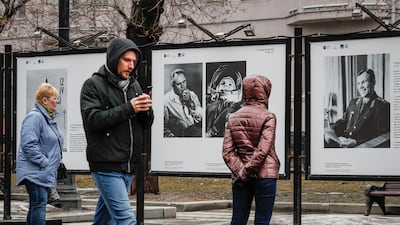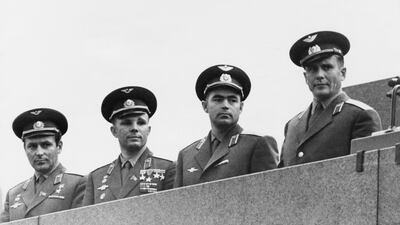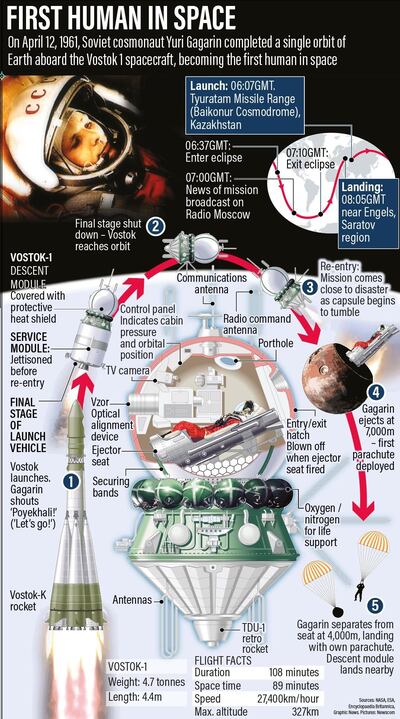An era of space exploration, innovation and the first space race kicked off when Russian Cosmonaut Yuri Gagarin became the first man in space.
Sixty years on, Russia continues to launch humans into orbit and is commercialising its space activities for a more sustainable space programme.
Russian diplomats in the UAE marked the 60th anniversary of Gagarin’s flight, where he spent 108 minutes in space aboard the Vostok-1 spacecraft on April 12, 1961.
“Gagarin is living in our hearts like a national hero,” said Yuri Vidakas, Charge d’Affaires of Russia in the UAE, on Thursday.
“All of the country, the former Soviet Union at that time, were extremely happy when they came to know the first cosmonaut was in orbit.”

Gagarin continues to be a national hero and cultural icon in Russia today.
Huge statues of the cosmonaut and different space museums across Russia commemorate the nation’s rich space history.
Anatoliy Krasnikov, a representative of Russian space agency Roscosmos in the UAE, said “every minute of the flight helped discovery the unknowing”.
“It was something new for us and for all of humanity. It was very important for the Soviet USSR and for the world,” he said.
“Now, we can say that Hazza Al Mansouri [the first Emirati man in space] is a colleague of Yuri Gagarin because they launched from the same site.”
Mr Al Mansouri launched into space from the Gagarin’s Start in Kazakhstan’s Baikonur Cosmodrome.
As Russia continues to honour its space heritage, its space agency is also trying to modernise its space programme through commercialisation.
The 21st century space race is in full swing, as Russia’s American rival Nasa launches humans into space again through commercial partnerships and sets its sight on the landing the next man and first woman on the Moon.
Russia is also increasing international collaboration. It has partnered with China to build a lunar research station and it is operating fully commercial flights by launching foreign satellites.
The country also hopes to dedicate the Gagarin’s Start launch pad for commercial spaceflights.
A trilateral agreement between Russia, the UAE and Kazakhstan is expected to be signed next month on “modernising” the launch site, with an investment of $87 million.
“After that move, maybe, there will be profit from the commercial launches. So, profit for each side,” said Mr Krasnikov.
Roscosmos also hopes to send the next Emirati into space.
“It’s our interest to get more commercial activities in our cosmodromes,” said Mr Krasnikov.
“American partners have their own spacecraft but now we have three places [seats] in our spacecraft. Now, we can propose somebody to fly with us. If it is the UAE side, it will be nice… we are ready.”


















